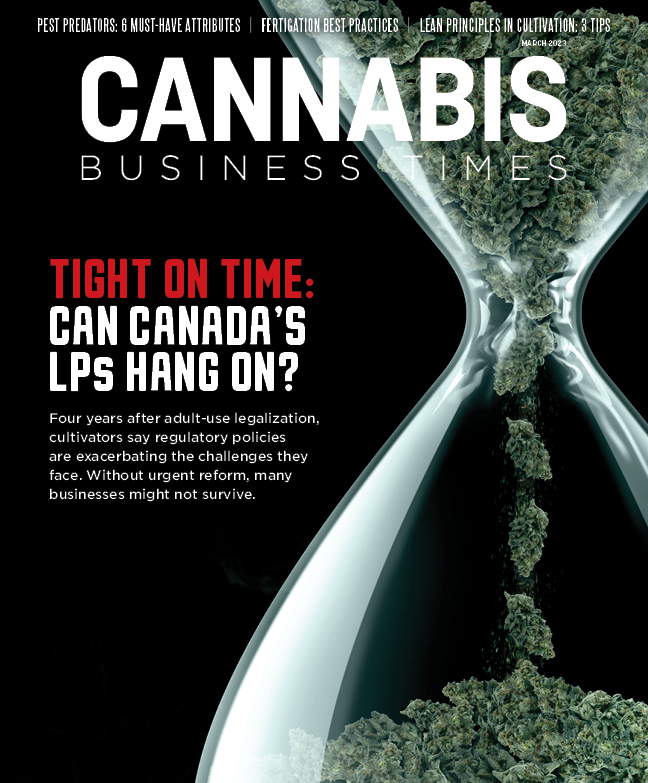
After much speculation about how the U.S. Food and Drug Administration (FDA) might handle the regulation of CBD and other hemp-derived products, the agency announced in January that it does not intend to pursue rulemaking that allows the use of CBD in dietary supplements, conventional foods or animal products. Instead, agency officials indicated that Congress must establish a new regulatory framework for these products due to the unique safety issues associated with them.
Norman Birenbaum, a senior public health adviser with the FDA, recently spoke with Cannabis Business Times about the agency’s announcement and how future regulations may take shape.
Melissa Schiller: Can you tell me about how you got into the cannabis space?
Norman Birenbaum: Because of changes with my wife’s job, I got an opportunity to go down to Rhode Island, and there I got hired by then-governor, now [U.S. Secretary of Commerce, Gina] Raimondo. A couple months into my time there, the chief of staff asked me what I knew about cannabis, and I told him I could identify it by smell, and that’s about it. He said, “Perfect! You’re not from here. We need fresh eyes on this. Take a look and make some recommendations.” And I did, and it put me on a career path that I didn’t plan and didn’t anticipate, but I’m very, very grateful for.
During my time in Rhode Island, I oversaw a restructuring and real overhaul of their medical program and the establishment of an Office of Cannabis Regulation there. Then, that work brought me to New York in a very similar role. I was the state’s first director of cannabis programs … [and helped] to establish the new Office of Cannabis Management.
MS: What goals do you have for a unified national cannabis policy?
NB: Our first goal is to work with Congress to establish a new regulatory framework and new authorities for hemp-derived products. FDA clarified its determination that a new regulatory pathway is needed for CBD products and hemp-derived products, given the safety profiles and the lack of ability for these products to likely satisfy the requirements under the food pathway or the dietary supplement pathway. So, there are certain reforms that people may be working on either in Congress or at the state level, which will take far more time, and what falls into our purview or not, focusing on CBD and on hemp-derived products is very much a priority.
The other priority is also [President Joe Biden’s] call for a reevaluation of marijuana and how it is classified under the Controlled Substances Act. That is also something that is certainly a priority for us at FDA.
MS: Do you ultimately anticipate the FDA ever administering policies for THC or even policies to address some of the other hemp-derived cannabinoids like delta-8 THC?
NB: In terms of things that are hemp-derived like delta-8, delta-10, HHC—there’s maybe a dozen more intoxicating THC isomers—the new authorities that we’re looking to develop with Congress certainly could be used to address those products, and if we look across the country over the last year or two, this is the one policy issue that states have been tackling the most. There are over a dozen states that have either put in place bans on delta-8, delta-10 or other THC isomers, and there are other states that have expanded their definition of THC to include these isomers to make sure that they’re regulated or not available.
As it pertains to marijuana, that would be a bit speculative. There are a lot of different things that would have to happen first, legislatively.
MS: If the FDA were to regulate some of these cannabinoids at the federal level, would that federal policy supersede state policy?
NB: That would be speculative. One thing that we know from the state approaches, whether you’re looking at state approaches to CBD, to hemp-derived intoxicants, to medical cannabis or adult-use cannabis, none of them are the same. That is certainly an environment that is rich with lessons learned and hopefully can help provide some best practices if and when that becomes FDA’s job, but it’s not its job right now. I would just emphasize again that the hemp-derived product space is vast and constantly changing, and trying to shoehorn one small segment of the market into an existing pathway that is not appropriate because of its safety profile doesn’t help anyone in the long term. It doesn’t help industry. It doesn’t help consumers or public health and safety.

Explore the March 2023 Issue
Check out more from this issue and find you next story to read.
Latest from Cannabis Business Times
- Cannabis Industry Reacts to Biden’s Rescheduling Announcement
- As Predicted, 4/20 Sales Surged During Cannabis Industry Holiday Weekend
- DEA 2024 Report Focuses on THC Potency, Organized Crime, Youth Edible Consumption
- Nature's Miracle, Agrify Sign Definitive Merger Agreement
- 5 Things to Confirm When Signing a Cannabis Facility Construction Agreement
- Ziel Partners With Portocanna, Receives 1st EU GMP Certification for Microbial Control Technology in Cannabis
- White House Moves to Reschedule Cannabis in ‘Monumental’ Decision, Biden Says
- SOMAÍ Group, and Its Subsidiary, RPK Biopharma Expand Cookies Partnership to Include Europe and the UK





